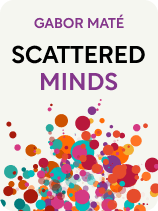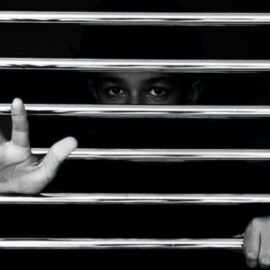

This article is an excerpt from the Shortform book guide to "Scattered Minds" by Gabor Maté. Shortform has the world's best summaries and analyses of books you should be reading.
Like this article? Sign up for a free trial here.
Can you heal ADHD? Why can’t medication treat ADHD?
Since ADHD results from the underdevelopment of your brain and psyche, Scattered Minds by Gabor Maté theorizes that you can heal your ADHD by leveraging blain plasticity to your advantage. This is your brain’s ongoing reactivity to environmental stimuli.
Here are Maté’s tips for how to heal ADHD in yourself and in your children.
Maté’s Theory of Healing
Maté says that doctors tend to treat ADHD like it’s a purely medical problem by prescribing medication—and nothing else—for it. He believes that this approach is fundamentally unsuitable and calls for a more holistic plan for understanding how to heal ADHD. Let’s dig more deeply into his theory of healing.
Medication Can Help, But It Won’t Heal
Maté argues that while ADHD medication can reduce or help you cope with your symptoms, it won’t heal your ADHD. That’s because the source of your ADHD symptoms isn’t simply a chemical imbalance. ADHD does have a chemical component—your brain doesn’t transmit dopamine (a neurotransmitter associated with the regulation of attention, impulse, and stillness) in the typical way.
But according to Maté, the chemical component of ADHD has deeper roots—you can’t transmit dopamine appropriately because you lack the appropriate neurostructure and positive life experiences that are required for typical dopamine transmission. Since ADHD medication can’t address those root causes, he says, it’s not possible to heal your ADHD with medication alone.
He also notes that ADHD medication isn’t appropriate for everyone—sometimes it doesn’t have the desired effect, or the side effects are insurmountably harmful. It’s important that your autonomy be respected when it comes to medication—if you feel it isn’t helping, you shouldn’t let anyone push you or your child to take it.
Your Brain Is Plastic, So Change Can Heal It
Maté theorizes that it’s best to treat ADHD by using brain plasticity to your advantage. He explains that while your brain is most plastic during childhood, it continues to be affected by environmental stimuli throughout the rest of your life. This means that it’s never too late to learn the psychological skills you missed out on developing as a child—and when you do, it’ll have a positive impact on your physical brain, too. Over time, you can gradually overcome the negative effects of early childhood stress on your brain.
Since Maté believes that the fundamental cause of ADHD is the rupture of the parent-child bond, that’s where he thinks you should focus most of your healing efforts. You can’t go back in time and provide yourself with a consistently positive childhood, but you can re-parent yourself as an adult by taking responsibility for your emotional wellness, learning to fulfill your own needs, and accessing the resources you need to improve. Likewise, if you’re the parent of a child with ADHD, you can help them flourish by making changes that strengthen the bond you share.
Concrete Steps for Adult Healing
So, what kinds of positive changes can you make to your life to help your adult brain heal? According to Maté, there are two essential components to re-parenting yourself: pursuing psychological growth and physical self-nurturing. Let’s explore some of his suggestions for healing in both of these areas.
Pursuing Psychological Growth
Accept yourself, including your difficult emotions and any behaviors you engage in but don’t necessarily approve of. Many people with ADHD struggle with self-esteem because they feel their condition holds them back from achieving their goals and getting others’ approval. You may even feel like there’s something innately wrong with you, which Maté attributes to the shame you felt every time the bond between you and your parents was ruptured. To gain self-acceptance, remind yourself that you’re doing your best and that healing is a journey—it’s okay if you’re not where you’d like to be yet.
Attend therapy. Maté explains that people have a deep-seated psychological need for validation from others, especially when they’re in pain. He says that a family therapist can provide you with that validation, help you understand your emotional pain, and support you in learning new psychological skills that can help you thrive.
Practice mindfulness. According to Maté, mindfulness improves your neurological capacity to focus; in addition, it may have other psychological benefits, like spiritual fulfillment, that help you heal the emotional pain that underlies your ADHD. He specifically recommends mindfulness meditation but notes that mindfulness can be incorporated into a vast array of activities, like spending time in nature.
Prioritize restorative recreation. Many people with ADHD overwork themselves as an outlet for their hyperactivity, but Maté says that in the long run, this only increases your stress. Instead, you should give yourself time to play, explore, and rest. For example, you might take up a creative hobby like crochet.
Physical Self-Nurturing
If you struggle with addiction to any substance or behavior (as many people with ADHD do), seek treatment. According to Maté, to effectively treat addiction, you have to understand and deal with the root of the problem—the emotional pain you’re trying to cover up by engaging in your addictive behavior.
Keep a neat home. An untidy environment can add to your emotional stress. If you struggle with this, Maté recommends setting a timer for a short period of time and cleaning until it goes off. Over time, you’ll make steady progress toward maintaining your environment.
Practice good sleep hygiene. Because of your difficulty with stillness, you may have trouble relaxing enough to fall asleep at night, but Maté notes that a lack of good sleep can worsen your stress.
Get adequate nutrition and exercise. Your sensitive temperament means that you feel the effects of undernourishment and under-exercising more strongly, which Maté says can increase stress and inhibit your progress. But your sensitivity also means that if you do get enough nutrition and exercise, you’ll feel their positive effects—like stress relief, increased focus, and improved mood—more strongly.
Concrete Steps for Childhood Healing
Maté’s advice for helping a child with ADHD heal is largely the same as his advice for adults: Don’t force them to take medicine if it does more harm than good, and do your best to provide the psychological and physical nourishment they need. However, children with ADHD—and their parents—face some unique challenges as well. Let’s explore some of those challenges and Maté’s proposed solutions for them.
Repairing the Parent-Child Bond
Maté believes the fundamental cause of ADHD is the rupture of the parent-child bond. Since your child is still developing, you have the opportunity to repair that rupture and strengthen the bond between you. According to Maté, the best way to do this is by cultivating and communicating an attitude of perfect acceptance of your child. If you’re perfectly accepting of your child, you feel that you love, respect, and appreciate your child no matter what—and more importantly, you make sure that your child feels secure in that fact.
To show your child that you accept them perfectly, Maté recommends the following steps:
Take a loving interest in your child’s inner world. Try to understand what it’s like to be them without trying to “fix” them. If your child senses that you’re judgmental, anxious, or angry about what’s going on with them, it can make them feel ashamed and want to pull away from you.
Initiate quality time with your child. This demonstrates that you value their presence in your life.
Avoid reactionary parenting. Maté says that your greatest priority as a parent is fulfilling your child’s needs—not acting on your own emotional impulses. For example, this could mean taking time to gather yourself before you launch into a difficult discussion with your child about their school performance. If you can’t regulate your emotions while you’re parenting, your child may feel anxious and alienated from you.
Dealing With Defiance
Many children with ADHD exhibit defiance—an automatic reflex where the child rejects the parent’s demands, expectations, or instructions—and parents struggle to deal with that defiance without escalating the conflict. Maté explains that defiance is healthy to some extent—by defying you, your child sets herself apart as an individual, which is an important part of her development. Defiance is especially common in teenagers because it’s developmentally important for them to begin feeling more independent.
Maté suggests taking the following steps whenever your child is defiant: First, encourage your child to express their feelings, and validate those feelings even if your child isn’t going to get their way. Second, decide whether it’s worth enforcing your rules in this case—is it something trivial or a matter of their safety or well-being? Third, refuse to engage in a power struggle—it’s not about overpowering or imposing your will on them but getting your child to cooperate with you. Finally—and most importantly—after a disagreement, take the initiative to reconnect with your child as soon as possible. This reaffirms your perfect acceptance of your child: They know that no matter what they do, your relationship can’t be damaged beyond repair.
Promoting Achievement
Maté emphasizes that promoting achievement shouldn’t be your first priority—it’s not as important as the parent-child bond, and if you put achievement first, your child will internalize your anxiety/anger about their performance as shame. However, Maté also says that children with ADHD need to feel empowered to achieve whatever they want to achieve.
He makes a couple of concrete suggestions to promote your child’s empowerment:
Develop your child’s capacity for intrinsic motivation by giving them the opportunity to make their own choices (within reason) and letting them know that it’s okay if they don’t meet others’ expectations for their achievement. Maté says this is better than relying on extrinsic motivation—like punishments and rewards—to encourage your child to achieve for three reasons: it gives the child anxiety about measuring up to your standards, increases defiance, and incentivizes the child to take the easiest route possible to achieve a desired reward (rather than incentivizing them to become genuinely invested in the task itself).
Maté suggests that when it comes to school-related achievement, you work together with your child’s teachers to ensure that your child’s ADHD-related needs are being accommodated. For example, if your child’s teacher says they have difficulty staying still during class, you can collaborate to incorporate appropriate movement into their day—for example, maybe a fidget spinner. You can also collaborate with your child himself by helping him strategize about how to meet his own educational goals without pushing your own goals onto him.

———End of Preview———
Like what you just read? Read the rest of the world's best book summary and analysis of Gabor Maté's "Scattered Minds" at Shortform.
Here's what you'll find in our full Scattered Minds summary:
- How ADHD is caused by early childhood stress that hinders development
- Why medication isn't the best way to treat ADHD
- How society can prevent ADHD in future generations






